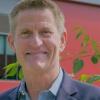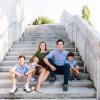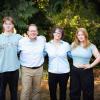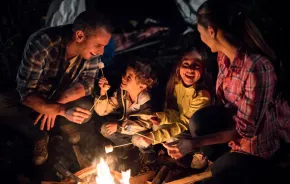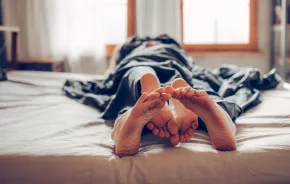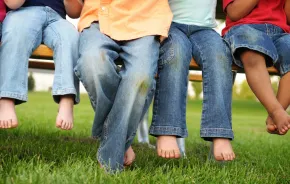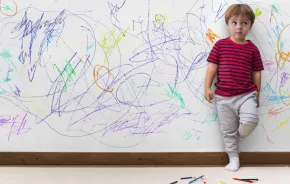ParentMap’s 2023 Superheroes for Washington Kids and Families
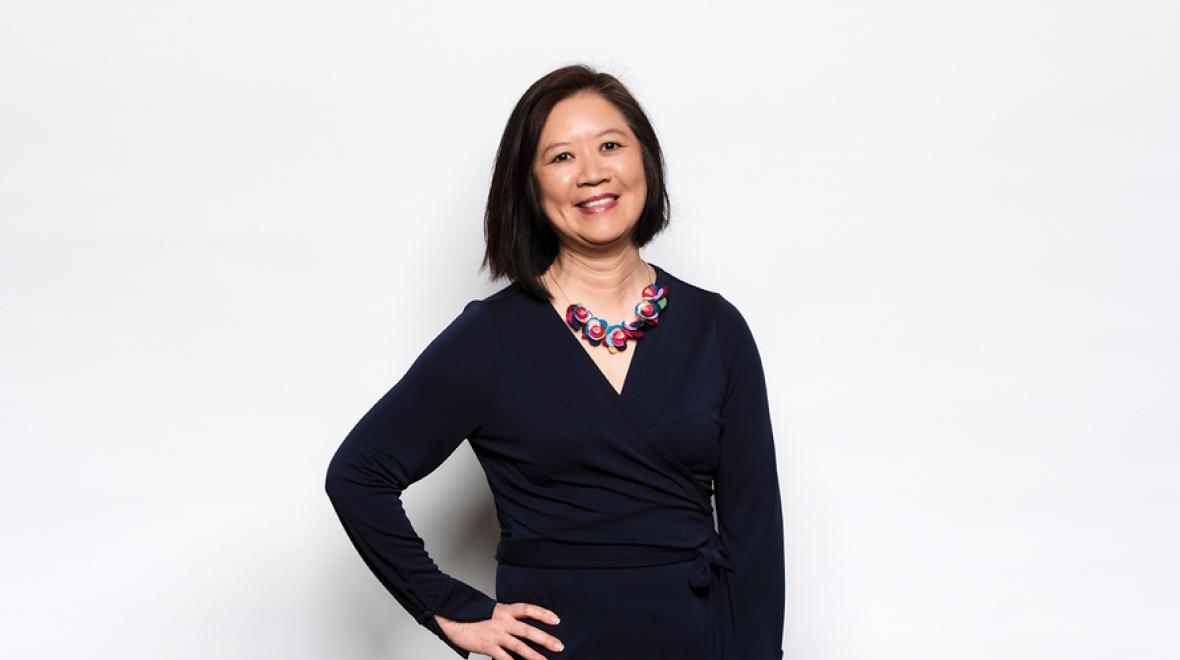
Photo:
Ming-Ming Tung-Edelman. Photo credit: Will Austin
The Artisan
Ming-Ming Tung-Edelman was a teenager when she immigrated to the United States from her native Taiwan. In her single suitcase, she carried with her an exquisitely and lovingly tailored turquoise-colored chiffon dress that her grandmother had made for her.
More than 30 years after arriving in America — and after a successful 25-year career as a pharmacist — Tung-Edelman drew on her immigrant experience to found the Refugee Artisan Initiative (RAI), an organization dedicated to developing, employing and fostering the creative talents of refugee and immigrant women.
“I started RAI out of my own desire to connect with women from around the world, to learn about where they are coming from and what I can do to contribute to them getting their start in America,” she says.
Noting that refugee and immigrant women have the highest unemployment rate in the country, at 60 percent, Tung-Edelman was motivated to create a program that would focus on nurturing this population to ensure these women have a fair chance to succeed here in America. Her chief inspiration for this second career act, she says, is her grandmother, who worked as a home-based seamstress to support her family in Taiwan.
“I started Refugee Artisan Initiative based on a combination of my love of fashion and compassion. During my immigrant journey, I always found that something was missing. That piece was connecting with my homeland. My grandmother made all of my clothes for me when I was growing up, and she made me realize that women with tools and skills can become self-sufficient,” Tung-Edelman explains.
The search for this missing piece led Tung-Edelman to became a student at the University of Washington in its fashion certificate program, where she befriended one of her instructors, Camille Steen, who was also teaching refugee women how to sew.
“There it was, the ‘Aha!’ moment for me,” Tung-Edelman recalls. Knowing that refugee women experience significant barriers to employment, and then learning in her fashion program that more than 80 percent of textiles get disposed of in landfills, Tung-Edelman had an epiphany: “Why not combine the two and create jobs?”
Thus, RAI was founded in 2017, with an inspiring mission to partner with refugee and immigrant women to ensure their prosperous transition in the United States through skills training and assistance starting their own microbusinesses.
Tung-Edelman was nominated as a 2023 ParentMap Superhero by Citizen University CEO and cofounder Eric Liu, whose powerful civic evangelism stems from his own experience growing up in America as the son of immigrants.
“Being a second-generation American has defined my worldview. It has given me a lifelong sense that every opportunity comes with obligation — to be useful, to contribute, to make all the striving and sacrifice worth it. It has also made me want to push my country to live up to the promises of opportunity and justice that drew people like my parents here,” says Liu. “The first — and only — person who came to mind is Mimi Tung-Edelman, who has created the Refugee Artisan Initiative and made it possible for so many refugee families to be assets and contributors to the culture of our communities.”
What motivates you most in your life and work?
Tung-Edelman: Every day, I wake up and I feel a deep sense of purpose. These are women who are wanting to work, who want to use their skills, so I think, what can I do to continue that pathway for them to become self-sufficient? That is really what motivates me.
What are some of the successes RAI has had in securing employment for program participants?
We pretty much made lemonade from lemons during COVID. In the middle of March 2020, when everyone was worried about where to find masks, we already had a stash of Amazon returned bedsheets that were 100 percent cotton. As a pharmacist, I just realized that we needed to make as many masks as we could. My first-ever GoFundMe campaign was to get masks made for health-care workers and keep our women employed, working at home, being safe. We made over 80,000 masks.
How has the program grown?
In the beginning we had three, then six women. This year, we’ll have 25 women from six different countries in the program. The majority are from Afghanistan. They may not know how to speak English. They may have five, six children at home. They may not know how to drive. They need home-based work, just like my Grandma.
When the women first come in, they are so shy. Literally just weeks off the plane, and they are scared and they don’t know anybody. And when they come in and hear the sewing machine, they hear other women speak their same language. Sewing is their universal language. It is a safe place for them.
What is one thing you would like to change about our society?
I want our society to realize we are so focused on deficits. When I came here, I didn’t speak English very well, and my mother was having a hard time finding work. I just realized that there must be a way to focus on the strengths these women already come with. If sewing is what they have, and that is something they already know, why can’t we create a pathway for that?
It is really a forgotten population. When they come, they have 90 days to be self-sufficient. Their husband has to find work right away, the kids go to school. And there is a huge mental crisis in that population of isolated women who don’t know what to do. They feel they’re worthless. I don’t want them to feel they’re worthless. They’ve come so far. Many have escaped the Taliban! These women have a lot of resilience. I just want to create a place and purpose for them.
If we don’t give these women a home, and an opportunity to be useful and self-sufficient, it is just [exacerbating] a cycle of isolation and mental health. They want to be as useful as all of us — they just don’t know how.
It’s not just refugee women: We all have the same issues. When I became a mother, with two kids, trying to juggle career and family was always so challenging, but at least we may have some options. For a lot of these [immigrant and refugee] women, they don’t even know what the options would be, because no one ever presented options to them. To me, that is not acceptable. As is the cost for our society of having to deal with long-term mental health, physical health and even just the government’s burden of simply providing for them. We just need to give them a path.
Who are some of your partners in this work?
We have some wonderful partners, including Starbucks. We take all of their coffee bags after they roast the coffee, and our women turn them into burlap bags. Starbucks purchases the bags back for their employee store. To me, that is true service to our circular economy, when you can divert this material that would otherwise wind up in landfill and turn it into something, and in the process, create jobs and help the company divert waste.
What do you wish you would have learned sooner?
That it is okay to be bold and bring your ideas. It took me many years, but at least taking that first step I consider a success, rather than not taking the step at all.
What can readers do to support the work of your organization?
We have a waiting list of close to 70 women who want to join the program. So, we need to have more staff to be able to continue to provide the care and provide training. Donate to our organization to help our cause … to assist these women to overcome whatever barrier they face to start their business — either buying a sewing machine or being able to afford their business license.
Sewing allows them to earn their first paycheck and more. Some are able to buy their first car for their husband to start his own Uber business. We have two women who have been here almost five years and now feel safe enough to put down a down payment for their first home. Those are the American dreams. I am here as a messenger to continue the program and make sure that more women can be served, more microbusinesses can be created.
Up next: The Political Firebrands



